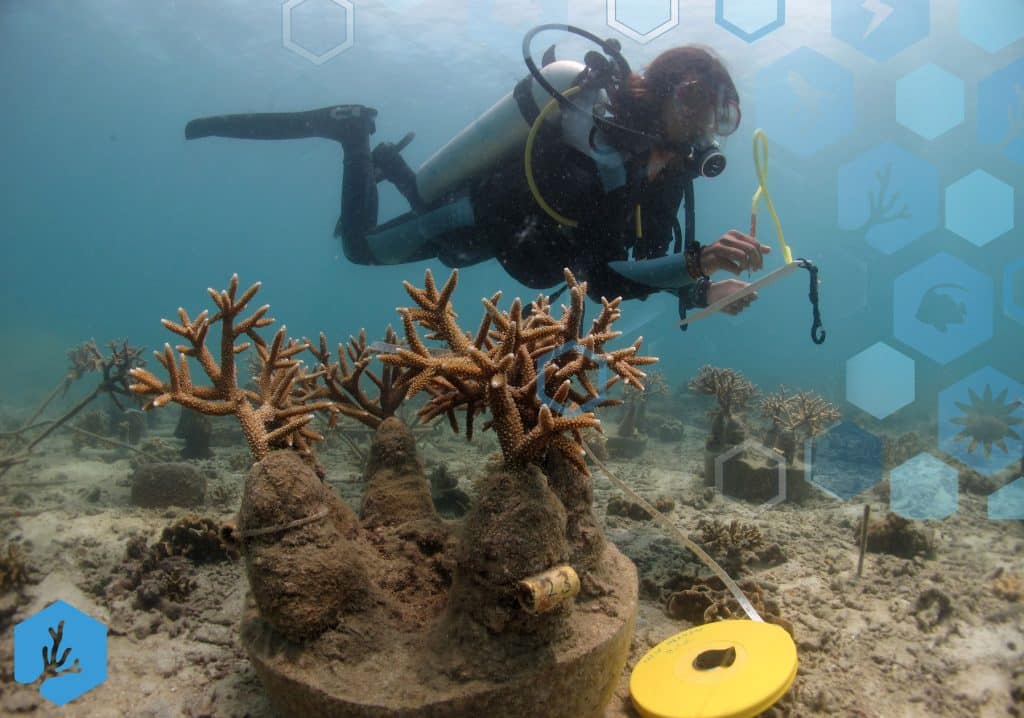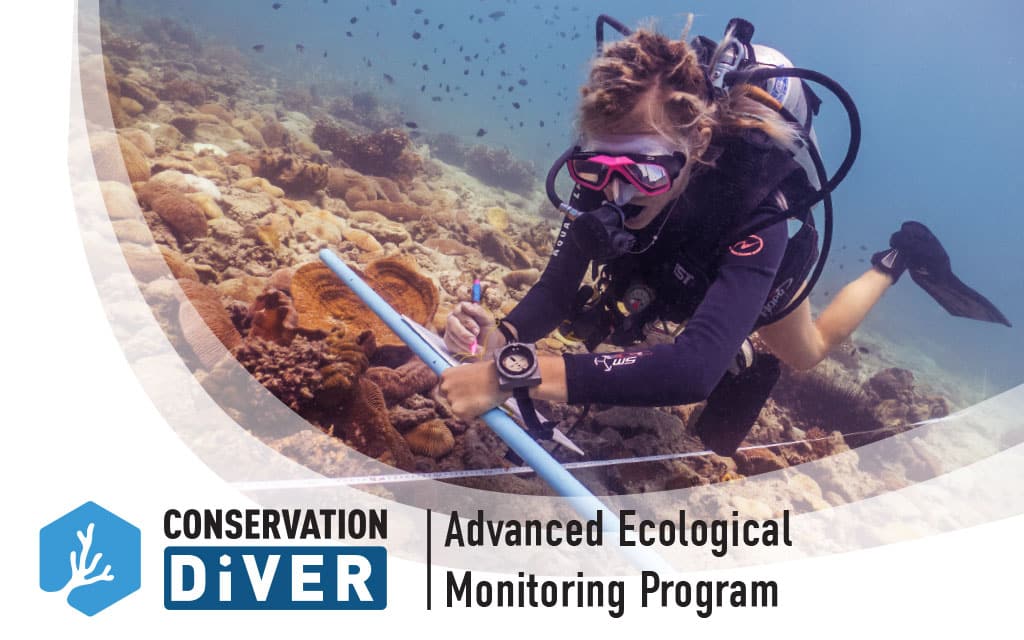Advanced Ecological Monitoring Program

The Advanced Ecological Monitoring Program certification is a prestigious certification course for students seeking to gain knowledge and practice in a multitude of research techniques and demonstrate exceptional skill in performing reef surveys and data collection. This certification recognizes your commitment to coral reef monitoring and research and takes several weeks to achieve.

Prerequisites
- Be 12 years of age or older
- Be certified as an Advanced diver under a leading diving organization (PADI, SSI, RAID, etc) or an Open Water diver who has satisfactorily completed a buoyancy appraisal with a professional diver
- Demonstrate proper diving ability at an advanced Level and be proficient in buoyancy and self-awareness
- Complete our Ecological Monitoring Program (EMP) certification
- Complete our Coral Taxonomy & Identification certification
- Complete our Coral Diseases & Compromised Health Monitoring certification or a similarly advanced monitoring course
- Complete at least 3 of the following seven other research certifications
- Giant Clam Nurseries & Population Studies
- Seahorse Ecology & Monitoring
- Nudibranch Ecology & ID Course
- Coral Predators: Population Monitoring & Management
- Shark Ecology & Population Studies
- Sea Turtle Ecology & Monitoring
- Marine Plastic Pollution: Monitoring & Assessment
- Macro Algae Monitoring
- Seagrass Ecology & Monitoring
Standards
- Learn and practice a variety of marine research techniques, including but not limited to; water quality testing, fragment/recruitment surveys, coral size class surveys, reef surveys using a quadrant, photo documentation, underwater photogrammetry, tracking growth rates, monitoring coral health, and more
- Successfully conducted various survey techniques and data collection protocols
- Enter data into our existing databases and understand how that data in analyzed and reported
Requirements
- Attend all knowledge development presentations included in the courses listed above as well as the Advanced Ecological Monitoring Program lecture
- Read and complete the chapter reviews for chapters 9-10 of the Ecological Monitoring Program manual
- Complete and pass all the written exams for the courses listed above (80% and above)
- Perform at least one Compromised Coral Health survey or Coral Bleaching Survey
Certification Card

Training Centers
- Hawai’i – Ocean Alliance Project
- Indonesia – Blue Marlin Conservation
- Indonesia – Gili Eco Trust
- Thailand – Black Turtle Dive
- Thailand – NHRCP
Published papers and reports derived through the teaching of this course
- Recruitment of hard coral communities on giant clam shells (Cardiidae: Tridacna) differ from surrounding reef habitats at a tourist destination in the Gulf of Thailand
Rahul Mehrotra, Alyssa Allchurch, Coline Monchanin, Chad M Scott - Citizen science reveals the population structure and seasonal presence of whale sharks in the Gulf of Thailand
Kirsty Magson, Emily Monacella, Chad Scott, Noémie Buffat, Sirachai Arunrugstichai, Metavee Chuangcharoendee, Simon J Pierce, Jason Holmberg, Gonzalo Araujo - Population dynamics of corallivores (Drupella and Acanthaster) on coral reefs of Koh Tao, a diving destination in the Gulf of Thailand by Chad M. Scott, Rahul Mehrotra, Margaux Y. Hein, Michelangelo S. Moerland, and Bert W. Hoeksema
- Rare zooxanthellate Nanipora octocoral (Helioporacea) in the Gulf of Thailand by Pau Urgell Plaza, Rahul Mehrotra, Chad M. Scott and James Davis Reimer
- Changes in hard coral abundance and composition on Koh Tao, Thailand, 2006-2014 by Chad M. Scott, Rahul Mehrotra, Madalena Cabral and Sirachai Arunrugstichai
- An update to the list of coral reef fishes from Koh Tao, Gulf of Thailand by Patrick Scaps and Chad M. Scott
- Incident Report and Restoration Overview: Boat Grounding, Chalok Ban Kao Reef, January 2017 2015. by Chad Scott, Spencer Arnold, Elouise Haskin, Kirsty Magson, Rahul Mehrotra, Joel Rorher, Pau Urgell Plaza
